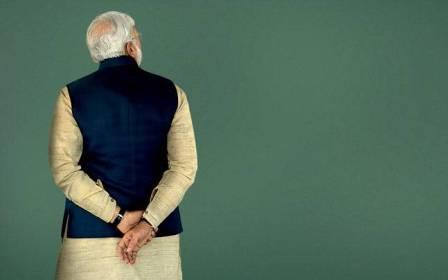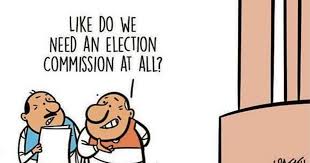You know it’s election season in India when Prime Minister Narendra Modi starts criticizing Indian Muslims and Pakistan. At his rallies, Modi has called Muslims in India “infiltrators” and claimed they “have more children,” despite these claims being proven false. He also falsely accused that if Congress comes to power, the wealth of ordinary citizens will be given to Muslims. This kind of rhetoric has helped Modi win two terms, and he might win a third, even though his policies have hurt the unity of Indian society.
Regarding Pakistan, Modi recently said in an interview that he has made sure Pakistan is not a factor in India’s affairs and that they should focus on their own issues. Some think that by attacking Pakistan, Modi is indirectly targeting Indian Muslims, a tactic often seen in Indian elections. For example, when a Pakistani politician praised Rahul Gandhi, Modi used it to accuse Congress of being supported by Pakistan, painting Congress as pro-Pakistan and pro-Muslim.
However, Pakistan’s approach to India has been different. Leaders from Benazir Bhutto to Nawaz Sharif and others have consistently sought peace and better relations with India. Journalist Kamran Yousaf wrote that Modi changed the dynamics with Pakistan after taking office in 2014, despite initially inviting Nawaz Sharif to his swearing-in and visiting Lahore. With India’s growing economic power and strong ties with the US due to concerns about China, India feels less pressure to make peace with Pakistan.
No formal talks have happened since 2011, and efforts through back-channels during Modi’s second term failed, especially after Modi’s unilateral move to revoke the special status of Jammu and Kashmir.
Disenfranchisement of Muslims?
Meanwhile, at home in Uttar Pradesh, journalist Saba Naqvi reveals the game-plan, in a recent Frontline article. The disenfranchisement of citizens begins when RSS panna pramukhs scrutinize electoral rolls, identifying localities where Muslims (20% of the State’s population) reside, and then attempt to have their names removed. Preventing this requires vigilance from both citizens and opposition forces. The process leading to name deletions involves either booth level officers (BLOs) concluding, after home visits, that voters have moved, or applications requesting name deletions, claiming individuals are no longer residents of a particular area.
State government employees responsible for updating electoral rolls often skip home visits and directly delete names, or they might be aligned with the ruling party’s ideology, following orders to alter the electoral demography. In August 2023, responding to a public interest litigation, the Election Commission of India (ECI) assured the Supreme Court that no voter names would be deleted without notice. However, evidence shows that vulnerable groups, including Dalits and Adivasis, continue to be affected. There should be a campaign to hold those responsible accountable, possibly making it a cognizable offense, to protect the fundamental right to vote.
Nosediving Reputation of the EC:
The ECI was once a respected institution, enjoying significant public trust and wielding extraordinary powers once an election was notified, more so than similar institutions in other democracies. Past studies reflected the public’s confidence in the ECI’s conduct of the electoral process. Unfortunately, under Modi’s administration, the ECI’s reputation and perceived neutrality have significantly declined, with justifiable reasons.



